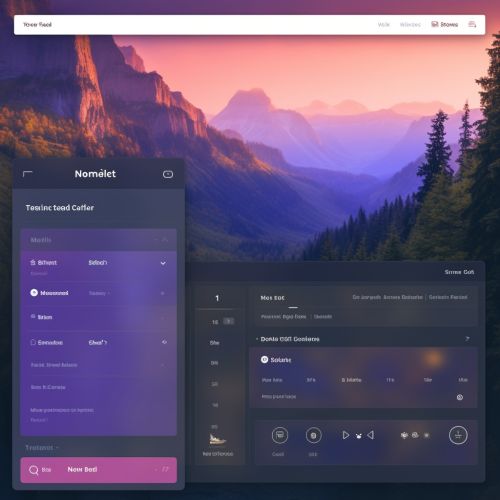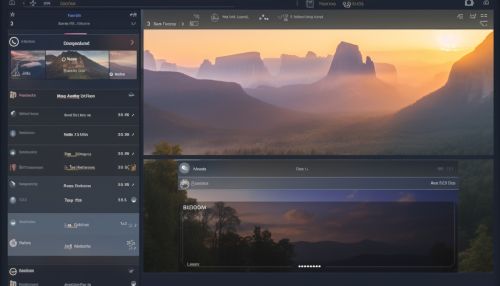Content Management System
Overview
A Content Management System (CMS) is a software application or set of related programs that are used to create and manage digital content. CMSs are typically used for Enterprise Content Management (ECM) and Web Content Management (WCM). An ECM facilitates collaboration in the workplace by integrating document management, digital asset management and records retention functionalities, and providing end users with role-based access to the organization's digital assets. A WCM facilitates collaborative authoring for websites. ECM software often includes a WCM publishing functionality, but ECM webpages typically remain behind the organization's firewall.


Types of CMSs
There are several types of CMSs, each with their own set of features and benefits. These include:
Enterprise Content Management Systems
Enterprise Content Management Systems (ECMS) are designed to organize documents, contacts and records associated with an organization's processes. They serve as an all-in-one solution that integrates with other software such as Customer Relationship Management (CRM) systems and business intelligence tools. ECMSs often include features for document management, web content management, records management, digital asset management, and workflow process management.
Web Content Management Systems
Web Content Management Systems (WCMS) are designed to streamline the process of publishing content to the web. They allow users to create, manage, and maintain websites with little to no knowledge of coding, making it possible for non-technical users to create and manage their own web content. WCMSs often include features for creating web pages, managing web content, and publishing web content.
Mobile Content Management Systems
Mobile Content Management Systems (MCMS) are designed to publish content specifically for mobile devices. They often include features for creating mobile apps, managing mobile content, and publishing mobile content.
Component Content Management Systems
Component Content Management Systems (CCMS) are designed to manage content at a granular level, rather than at the document level. They often include features for creating content components, managing content components, and publishing content components.
Key Features of CMSs
Content Management Systems typically offer a range of features that facilitate the creation, management, and publication of digital content. These include:
Content Creation
CMSs provide tools for creating digital content. These may include text editors, image editors, and video editors. Some CMSs also include tools for creating interactive content, such as quizzes and surveys.
Content Management
CMSs provide tools for managing digital content. These may include tools for organizing content, scheduling content publication, and tracking content revisions. Some CMSs also include tools for managing user permissions, ensuring that only authorized users can access certain content.
Content Publication
CMSs provide tools for publishing digital content. These may include tools for publishing content to various channels, such as websites, mobile apps, and social media platforms. Some CMSs also include tools for scheduling content publication, allowing users to plan their content strategy in advance.
Content Optimization
CMSs provide tools for optimizing digital content. These may include tools for search engine optimization (SEO), social media optimization (SMO), and conversion rate optimization (CRO). Some CMSs also include tools for A/B testing, allowing users to test different versions of their content to see which performs best.
Benefits of Using a CMS
There are several benefits to using a Content Management System, including:
Efficiency
CMSs streamline the process of creating, managing, and publishing digital content, making it possible for users to maintain consistent and up-to-date content across multiple channels.
Accessibility
CMSs make it possible for non-technical users to create and manage their own digital content, reducing the need for specialized technical knowledge.
Collaboration
CMSs facilitate collaboration, making it possible for multiple users to work on the same content simultaneously.
Scalability
CMSs are scalable, making it possible for organizations to manage large amounts of content and data.
Control
CMSs provide users with control over their digital content, allowing them to manage who can access their content and when.
